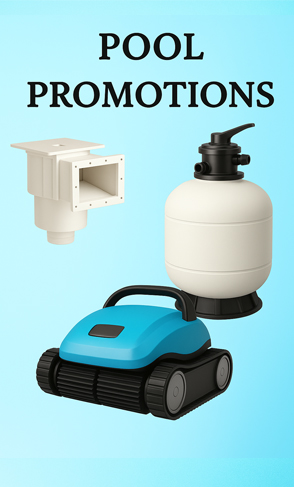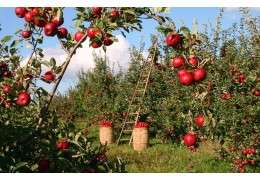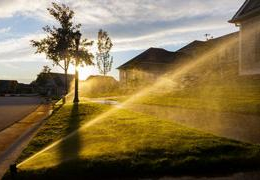Natural Fertilizer: A Complete Guide to Caring for Your Plants
Using fertilizers is essential to ensure proper plant growth and development. But what exactly is fertilizer ? How do you choose the best fertilizer for plants or for the flowering stage? In this article, we'll answer these questions and explore key concepts, such as the difference between fertilizer and compost , and the advantages of natural fertilizer and organic fertilizer . We'll also discuss whether fertilizer and compost are the same thing and how to create natural plant fertilizer at home.
What is a fertilizer?
A fertilizer is a compound designed to provide essential nutrients to the soil and plants, helping to improve their growth, health, and productivity. Fertilizers contain basic elements such as nitrogen, phosphorus, and potassium, which are essential for plant development.
Fertilizers can be chemical or natural. While chemical fertilizers are manufactured in laboratories, natural and organic fertilizers come from biological sources, such as food scraps, manure, or compost.
Fertilizer and compost: are they the same thing?
One of the most common questions is whether fertilizer and manure are the same thing . Although they are often used interchangeably, there is a clear difference between fertilizer and manure :
- Fertilizer: Provides nutrients directly to the soil or plants in the form of chemical or natural compounds, stimulating their growth.
- Fertilizer: It is an organic product that enriches the soil by improving its structure and increasing its capacity to retain water and nutrients.
In short, fertilizers provide nutrients immediately, while manures act over the long term by improving soil properties.
Nitrofoska Special Fertilizer 5 kg: complete nutrients for your plants
Nitrofoska Special Fertilizer 5 kg (12+12+17+2) is an excellent choice for ensuring balanced growth in your plants, especially after pruning and during intensive development stages. This product combines essential macronutrients such as nitrogen, phosphorus, and potassium with key micronutrients such as magnesium, sulfur, boron, and zinc, making it a complete solution for a variety of crops.
Main features
- Balanced composition: Contains 12% total nitrogen (5% nitric and 7% ammonia), 12% phosphorus pentoxide and 17% potassium oxide, as well as 2% magnesium oxide, among other micronutrients.
- Versatility: It is suitable for citrus, fruit trees, vegetables, tobacco and vineyards, adapting to a wide variety of crops.
- Easy application: Thanks to its granulated composition, it is distributed evenly, allowing a constant supply of nutrients.
- Post-pruning benefit: Recommended for application to trees and plants undergoing recovery and growth after pruning.
If you're looking for the best plant fertilizer , Nitrofoska Special Fertilizer is ideal thanks to its composition and proven effectiveness. This product combines a formula designed to maximize crop development at different stages.
Advantages of Nitrofoska Special Fertilizer
- Better growth: Provides the essential nutrients that plants need to develop healthily.
- Greater resistance: Helps plants cope with environmental stress and improve their productivity.
- Visible results: Ideal for crops in stages of high nutritional demand, such as flowering and fruit formation.
Recommended dose
The dose varies depending on the crop:
- Citrus: 400-800 kg/ha.
- Stone fruit: 400-500 kg/ha.
- Vegetables: 400-800 kg/ha.
- Tobacco: 500-700 kg/ha.
- Vineyard: 250-400 kg/ha.
Why choose Nitrofoska Special Fertilizer?
At The Garden Store , we offer high-quality products like Nitrofoska Special Fertilizer , designed to meet the needs of all types of crops. This fertilizer not only ensures a balanced supply of nutrients, but is also a key investment to maximize your plants' productivity and ensure their long-term health.
Natural and organic fertilizer: a sustainable alternative
The use of natural and organic fertilizers is gaining popularity due to their sustainability and environmental benefits. These fertilizers are ideal for those seeking chemical-free alternatives, protecting both plants and the ecosystem.
Benefits of natural and organic fertilizer
- Improves soil quality by providing organic matter.
- Reduce dependence on chemicals that can pollute the environment.
- Promotes healthy and balanced plant growth.
- It is cheaper and can be prepared at home.
Common examples of natural plant fertilizers include compost, kitchen waste, manure, plantain tea, and bone meal.
Best fertilizer for plants
Choosing the best plant fertilizer depends on the type of crop and the specific needs of each plant. Some plants need more nitrogen for initial development, while others require more phosphorus and potassium during flowering.
Complete fertilizers, which contain nitrogen (N), phosphorus (P), and potassium (K), are ideal for most plants. However, there are also specific fertilizers designed for specific growth stages, such as the best fertilizer for flowering .
Best fertilizer for flowering
During the flowering stage, plants need a fertilizer rich in phosphorus and potassium to stimulate flower and fruit production. The best fertilizer for flowering can be either chemical or natural, depending on your preferences.
- Chemicals: Liquid or granulated fertilizers that provide a quick dose of nutrients.
- Natural: Options such as bat guano, bone meal, or compost tea.
These products help flowers to be more abundant, larger in size, and of better quality.
How to make natural plant fertilizer at home
If you prefer a homemade alternative, you can create a natural plant fertilizer using materials you already have at home. These fertilizers are not only economical but also contribute to the environment.
Natural fertilizer recipes
- Banana tea: Boil banana peels in water and use the cooled liquid to water plants. It's rich in potassium and phosphorus.
- Crushed eggshells: They provide calcium to the soil, helping to strengthen plant roots.
- Used coffee grounds: Ideal for enriching acidic soils and providing nitrogen.
- Compost: A mixture of food scraps, dry leaves, and other organic waste that improves soil quality.
These homemade methods are an excellent way to introduce natural plant fertilizer in an easy and sustainable way.
Difference between fertilizer and manure: which one to choose
Now that we know that fertilizer and compost are not the same thing , the question arises: which is best for your plants? The choice will depend on your specific needs:
- Fertilizer: If you're looking for immediate results, such as rapid growth or increased flower production, fertilizer is ideal.
- Fertilizer: If you want to improve soil quality and ensure long-term sustainable development, opt for fertilizer.
A combination of both is often the best option for a healthy and productive garden.
How to choose the best plant fertilizer?
Selecting the best fertilizer for plants involves considering factors such as crop type, soil condition, and growth stage. Some tips for choosing the right fertilizer include:
- Perform a soil analysis to identify which nutrients are lacking.
- Consider the growth stage: Use nitrogen-rich fertilizers for early growth and phosphorus-rich fertilizers for flowering.
- Opt for organic fertilizers if you're looking for a sustainable approach.
Specific fertilizers, such as the best fertilizer for flowering , are designed to meet specific needs, ensuring optimal plant development.
Conclusion: Natural fertilizer and efficient plant care
Using fertilizers, especially natural fertilizers , is key to ensuring plant health and productivity. Knowing what fertilizer is , understanding the difference between fertilizer and manure , and choosing the best fertilizer for plants or flowering plants can make a big difference in the care of your garden or orchard.
Plus, making natural plant fertilizer at home is not only easy and affordable, but also contributes to a more sustainable and environmentally friendly approach. Apply these tips and enjoy healthier, more productive plants!












Leave a comment